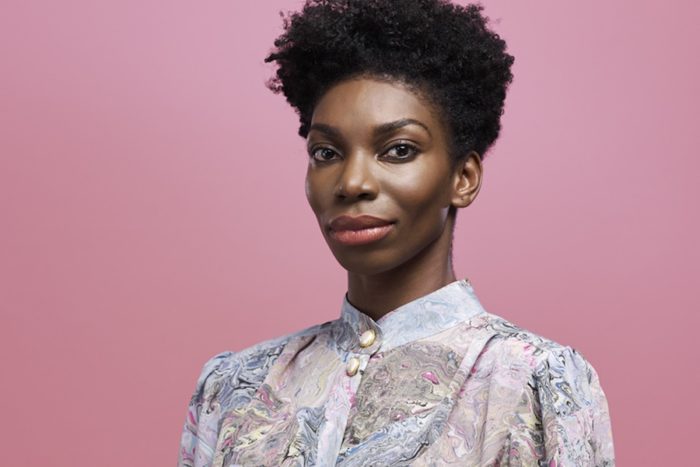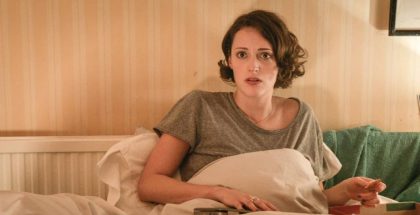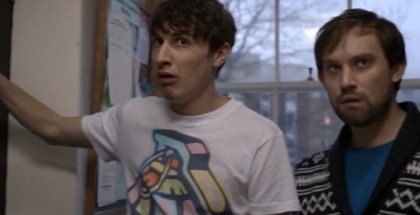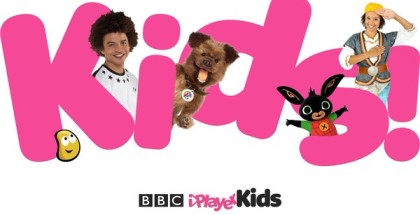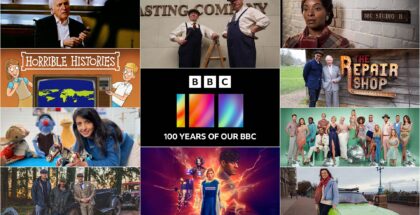Michaela Coel calls for industry change, as new drama tackles consent
David Farnor | On 22, Aug 2018
Michaela Coel will explore the issue of sexual consent in a new BBC drama, a subject that she also spoke out about in her keynote lecture at the Edinburgh TV Festival.
The rising star of Black Mirror and E4’s Chewing Gum spoke to an industry audience at the prestigious James MacTaggart Memorial Lecture today, and used it to call for change in the industry, including support for sexual assault survivors and active inclusion of “misfits”.
“Being a misfit hurts. I can recall rummaging through a gift bag for my first big mainstream award. It contained dry shampoo, tanning lotion, and a foundation even Kim Kardashian was too dark for. A reminder: This isn’t your house,” she said, detailing her own experiences of discrimination as a young writer.
“I won an award, for writing. At the afterparty, a London producer introduced himself to me. I said, ‘Oh yes, nice to meet you.’ ‘Do you know how much I want to fuck you right now?’ was his immediate choice of response. I turned from him and went home so quickly I left my plus-one.”
She then went on to detail how she was assaulted while working on Chewing Gum.
“I was working overnight in the company’s offices; I had an episode due at 7am,” she explained. “I took a break and had a drink with a good friend who was nearby. I emerged into consciousness typing Season 2, many hours later. I was lucky. I had a flashback. It turned out I’d been sexually assaulted by strangers. The first people I called after the police, before my own family, were the producers.”
“Overnight I saw them morph into an anxious team of employers and employees alike; teetering back and forth between the line of knowing what normal human empathy is and not knowing what empathy is at all,” she said, before noting that she was “not raped within the offices of the company” and has “never been raped by anyone at the company”.
She noted that she had to take a break from Chewing Gum’s writing deadlines, rather than wait for the producers to give her a break. She also noted that she was sent to a private clinic for therapy, paid for by the producers. The powerful speech drew a standing ovation from the crowd.
“Like any other experience I’ve found traumatic, it’s been therapeutic to write about it, and actively twist a narrative of pain into one of hope, and even humour,” she said. “And be able to share it with you, as part of a fictional drama on television, because I think transparency helps.”
Indeed, the speech took place on the same day that BBC Two announced that Coel is writing a “landmark drama” for the channel – working title Jan 22nd – that will explore the question of sexual consent in modern life, and how people make the distinction between liberation and exploitation.
Set in London, where gratification is only an app away, the story centres on Arabella (Coel)y. Through Arabella we meet a group of fictional friends and colleagues whose sexual adventures frequently collide with a world in which new codes of sexual practice are emerging.
Patrick Holland, Controller of BBC Two, says: “Michaela Coel is a unique talent and her writing for this drama explodes from the page. It promises fearless, provocative and gripping storytelling exploring one of the defining issues of our times. I am absolutely delighted that Michaela is bringing this to BBC Two.”
Produced by Various Artists Ltd the series is a co-production with FALKNA Productions for BBC Two.
Channel 4’s director of programmes Ian Katz also released a statement in response to her speech.
“Michaela’s MacTaggart is a powerful and important wake-up call. She has raised vital questions about opportunity, support, transparency and inclusion that as an industry we must all address with urgency. The experiences she has described in her lecture are not what we would want for anyone working with Channel 4 or any part of our industry,” he commented.
“She has opened an honest debate about how we ensure that writers and performers, whatever their backgrounds, feel respected and heard. We want an industry that truly celebrates difference and is accessible to all, so broadcasters and producers now need to work in partnership to act on the issues she has raised.”


